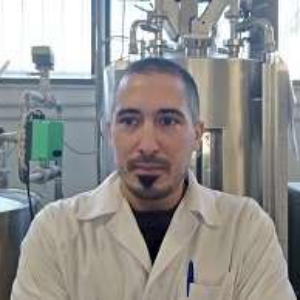Title : A sustainable valorisation of spent hops from dry-hopping
Abstract:
Dry-hopping is the cold extraction of non-volatile and volatile compounds from hops into beer and it impacts the costs per hectolitre of beer production generating a considerable amount of waste (spent hop, SH) which still contains compounds that can be reused in brewing. The study aimed to evaluate the non-volatile and volatile compounds retained in the SH and their brewing potential carrying out brewing tests at laboratory and pilot scale with spent (SH) and new fresh hops (FH).The blended spent hops, after dry-hopping, were collected on three batches of production from a local craft brewery (Capodacqua, Perugia, Italy) and stored under vacuum at -25 °C before analysis or beer sample preparation. The hops were tested following the standard methods of Analytica European Brewery Convention (A-EBC), the volatile compounds of hop oil and the hop-derived aroma compounds in wort and beer were determined based on solid-phase microextraction (SPME) using a gas chromatograph equipped Mass Spectrometer (GC-MS). The sensory analysis was performed by a professional, trained beer-tasting panel, and furthermore, the obtained beer samples were compared by triangle test.
The results highlighted how during static dry-hopping the non-volatile compounds, α- and β-acids, and phenolics were released into the beer to a limited extent, while for volatile compounds, as expected the extraction was different according to the physicochemical characteristics of the hop essential oils. The extraction efficiency during static dry hopping was low (18.8%) and SH still contains a significant amount of hop oil. Concerning the volatile compounds, the SH showed on average lower monoterpenes and terpene alcohols content than FH, while sesquiterpenes were at a comparable level.The use of SH in wort production at the pilot scale underlined no differences in α-acids isomerization rate (25.2%) compared with the fresh hop, FH (24.8%). The wort produced showed higher monoterpenes and sesquiterpenes levels and lower terpene alcohols. The 30 IBU (International Bitterness Units) beers, similar for the main qualitative parameters, showed significant differences in the polyphenol content (260 and 229 mg/l for FH and SH, respectively) and in the amount and composition of the hop volatile compounds (451 and 243 µg/l for FH and SH, respectively), lower in SH samples; however, the sensory evaluation did not highlight significant differences between samples, as confirmed by the triangle test. Results clearly indicate the suitability of SH for brewing purposes.



